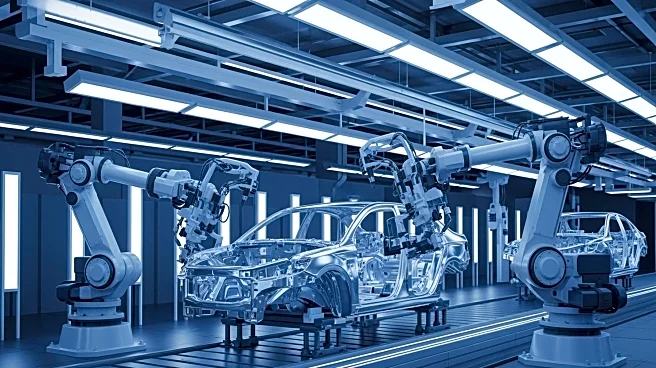What's Happening?
President Trump has signed executive orders extending incentives for domestic auto and engine production until 2030. The orders also impose tariffs on imported medium and heavy-duty trucks and parts, as well
as a new tariff on imported buses. These measures are justified on national security grounds and aim to bolster U.S. manufacturing by encouraging domestic production and reducing reliance on foreign imports.
Why It's Important?
The extension of auto production incentives reflects the administration's commitment to strengthening the U.S. manufacturing sector and supporting domestic industries. By imposing tariffs on imports, the government seeks to protect national security interests and promote economic growth through increased domestic production. These actions could have significant implications for the auto industry, affecting supply chains, pricing, and competitiveness.
What's Next?
The implementation of tariffs and incentives will likely lead to adjustments in the auto industry's strategies, as companies navigate the new regulatory landscape. Stakeholders, including manufacturers, suppliers, and consumers, will need to assess the impact of these measures on their operations and market dynamics. The administration's focus on national security may continue to influence policy decisions, shaping the future of U.S. manufacturing.
Beyond the Headlines
The emphasis on national security in economic policy raises questions about the balance between protectionism and global trade. As the U.S. seeks to enhance its manufacturing capabilities, the ethical and strategic dimensions of these policies will be scrutinized. The long-term effects on international relations and domestic industries will be critical in evaluating the success of these initiatives.








